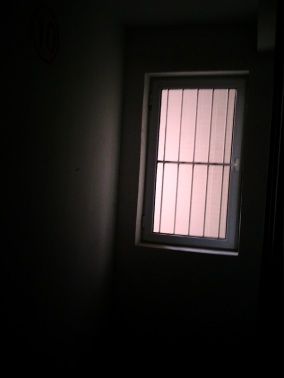
I have begun teaching Ray Bradbury’s “Fahrenheit 451” to my ninth grade high school students. It is interesting teaching this book realizing that all of the students in the room (from varying international backgrounds) have been raised with more advanced and “faster” communication technologies than I could have dreamed of when I was their age. Granted I am not that “old,” but do remember the day when a large satellite television dish was planted in what used to be a garden in our yard. The black monolith, which connected me with other virtual worlds, which greatly shaped my imaginative development.
It is difficult for some of them to relate to the overarching themes of a society obsessed with amusement and speed. Could this be due to the ways in which technology and amusements have already infiltrated their minds? And, am I, as their “teacher,” immune from the consequences of an over reliance on the various gadgets that make my life easier? Should the role of the teacher of a book like “Fahrenheit 451” be one who has become like the character Clarisse, “insane” to the eyes of an out-of-control society as described in the book? If so, wouldn’t, in the teaching of this book, it make more sense to conduct the class while sitting on grass, away from the technological pull of the city? More importantly, does this book resonate with the students in the ways in which Bradbury intended? What kind of student would it take to “take arms against a sea of amusements (Postman)”? What kind of research would be most applicable? What kinds of secondary texts would fill in the gaps?
In order for this book to achieve its own purposes as a so-called “novel of ideas,” it would seem necessary to me to foster an inquisitive classroom environment from which students could gain the capacity to critically and curiously question the technological devices and media influences in their lives that they are exposed to and that they expose themselves to on an hourly basis. The development of these capacities would be for the purpose of having them re-experience those devices and interfaces that shape the virtual landscapes of planet “my life.” What questions would one need to ask to enable students to ask the right questions to themselves about their connections to technology and what that technology could mean? Would this way of teaching (inquistive) make for the proper atmosphere of presenting the novel’s ideas?
At the end of a few lessons, I began thinking about how this book will influence and hopefully develop their ability to examine contemporary culture. For example, the character Clarisse says, “I sometimes think drivers don’t know what grass is, or flowers, because they never see them slowly.” This observation, which I felt captured a potent insight into culture didn’t seem to resonate with students, even though our location (Beijing) is a city of vehicles, an overpopulation of vehicles. None of the students walk to and from school and judging from their reactions to the idea of “walking for pleasure,” none of them see walking for the sake of walking as a choice by which one’s experience of the world and how one perceives it is enhanced as having any relevance to them whatsoever.
Other than actually taking them on a walk, how does one open up this idea and make it relevant? How can we teach students to regain the simplicity of life if they don’t want to learn it?
Thank you for reading. I hope that this edited yet stream-of-consciousness “think piece” is of use to you.




Reply